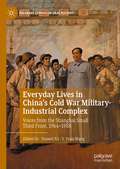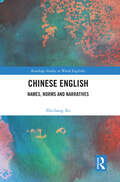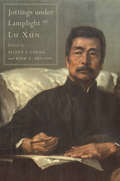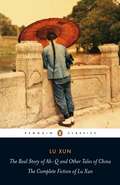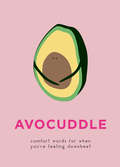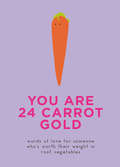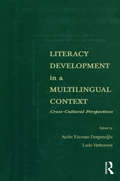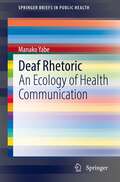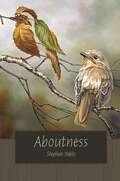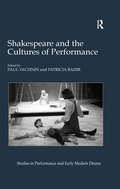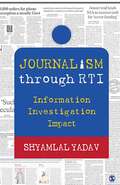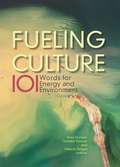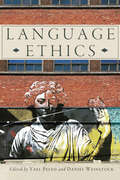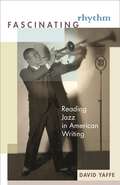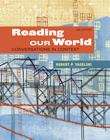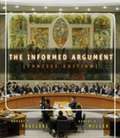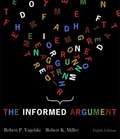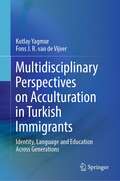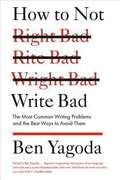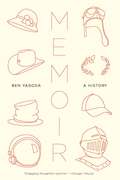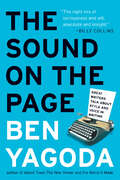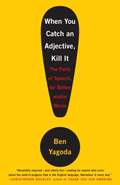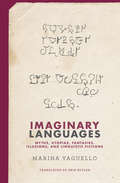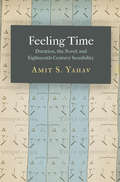- Table View
- List View
Everyday Lives in China's Cold War Military-Industrial Complex: Voices from the Shanghai Small Third Front, 1964-1988 (Palgrave Studies in Oral History)
by Youwei Xu Y. Yvon WangThis book translates and contextualizes the recollections of men and women who built, lived, and worked in some of the factory compounds relocated from China’s most cosmopolitan city—Shanghai. Small Third Line factories became oases of relatively prosperous urban life among more impoverished agricultural communities. These accounts, plus the guiding questions, contextual notes, and further readings accompanying them, show how everyday lives fit into the sweeping geopolitical changes in China and the world during the Cold War era. Furthermore, they reveal how the Chinese Communist Party’s military-industrial strategies have shaped China’s economy and society in the post-Mao era. The approachable translations and insight into areas of life rarely covered by political or diplomatic histories like sexuality and popular culture make this book highly accessible for classroom use and the general-interest reader.
Chinese English: Names, Norms, and Narratives (Routledge Studies in World Englishes)
by Zhichang XuThis book offers a distinct exploration of Chinese English – which has the largest rising population of speakers in the World Englishes (WE) family. Xu focuses on the fundamental issues of "names" and "norms" that are closely related to Chinese English and the "narratives" of the speakers of Chinese English. In addition to current approaches to WE research, this book proposes a novel theoretical and analytical framework based on classical Chinese and Western philosophies. The volume has an empirical basis, drawing upon interview and questionnaire survey data from proficient speakers of Chinese English. It is also based on an extensive review of the relevant literature on both WE and Chinese English, and it draws upon the author’s research experience of over two decades on the subject. This is the third research book on Chinese English that the author has contributed to WE literature and it will be a valuable read for students and scholars alike.
Jottings under Lamplight
by Lu XunLu Xun (1881–1936) is widely considered the greatest writer of twentieth-century China. Although primarily known for his two slim volumes of short fiction, he was a prolific, inventive essayist. These 62 essays—20 translated for the first time—showcase his versatility as a master of prose forms and his brilliance as a cultural critic.
The Real Story of Ah-Q and Other Tales of China: The Complete Fiction of Lu Xun
by Lu XunLu Xun (Lu Hsun) is arguably the greatest writer of modern China, and is considered by many to be the founder of modern Chinese literature. Lu Xun's stories both indict outdated Chinese traditions and embrace China's cultural richness and individuality. This volume presents brand-new translations by Julia Lovell of all of Lu Xun's stories, including 'The Real Story of Ah-Q', 'Diary of a Madman', 'A Comedy of Ducks', 'The Divorce' and 'A Public Example', among others. With an afterword by Yiyun Li.
AvoCuddle: Comfort Words for When You're Feeling Downbeet
by XxxxxxLet your fellow human beans know that everything will be okale with this little book of upbeat and adorkable fruit puns.This cute and colorful series of fruit-pun-filled gift books are the perfect pick-me-ups for you, your friend or your partner in crime. Do you need to avocuddle, or are you grapeful for someone who’s 24 Carrot Gold? Then share the clove with these little books: AvoCuddle, and You are 24 Carrot Gold.*veg, nuts and seeds are fair game
You Are 24 Carrot Gold: Words of Love for Someone Who's Worth Their Weight in Root Vegetables
by XxxxxxThere’s always that one pearson who’s the cherry on top, the cool beans, the pea’s knees. Tell them they’re amaizeing with this little book of upbeat and adorkable fruit puns.This cute and colorful series of fruit-pun-filled gift books are the perfect pick-me-ups for you, your friend or your partner in crime. Do you need to avocuddle, or are you grapeful for someone who’s 24 carrot gold?? Then share the clove with these little books: AvoCuddle, and You are 24 Carrot Gold.*veg, nuts and seeds are fair game
Literacy Development in A Multilingual Context: Cross-cultural Perspectives
by Aydin Y Ludo VerhoevenDuring the past decades, literacy has gradually become a major concern all over the world. Though there is a great diversity in both the distribution and degree of literacy in different countries, there has been an increasing awareness of the number of illiterates and the consequences of being illiterate. However, literacy is no longer seen as a universal trait. When one focuses on culturally-sensitive accounts of reading and writing practices, the concept of literacy as a single trait does not seem very feasible. A multiplicity of literacy practices can be distinguished which are related to specific cultural contexts and associated with relations of power and ideology. As such, literacy can be seen as a lifelong context-bound set of practices in which an individual's needs vary with time and place. This volume explores the use of literacy outside the mainstream in different contexts throughout the world. It is divided into four sections. Section 1 presents an anthropological perspective--analyzing the society and the individual in a society. Section 2 presents a psychological perspective--focusing on the individuals themselves and analyzing the cognitive and affective development of young children as they acquire literacy in their first and second languages. Section 3 presents an educational perspective--highlighting the variations in educational approaches in different societies as well as the outcomes of these approaches. Section 4 summarizes the studies presented in this volume. Both theoretical issues and educational implications related to the development of literacy in two languages are discussed. An attempt is also made to open up new directions in the study of literacy development in multilingual contexts by bringing these various disciplinary perspectives together.
Deaf Rhetoric: An Ecology of Health Communication (SpringerBriefs in Public Health)
by Manako YabeThis book guides healthcare professionals, hospital administrators, and medical interpreters in the United States (and internationally) in ways to better communicate with Deaf and Hard of Hearing (D/HH) patients and sign language interpreters in healthcare settings. It also provides an overview of the healthcare communication issues with healthcare professionals and D/HH patients, and the advantages and disadvantages of using in-person interpreters vs. video remote interpreting (VRI). Due to technology development, hospital administrators have popularized the use of VRI and reduced the number of in-person interpreting services, which have negatively affected the quality of medical interpreting services and patient-provider communication. The COVID-19 pandemic also has accelerated the move toward more VRI, particularly in the US.The book addresses an understudied aspect of access and is written by an international deaf researcher from Japan who uses American Sign Language (ASL) and English as non-native languages. In order to identify appropriate interpreting services for specific treatments, the author focuses on healthcare professionals' and D/HH patients' interpreting preferences for critical and non-critical care in the US, and offers a new theoretical framework, an Ecology of Health Communication, to contextualize and analyze these preferences. The ecological matrix and its five analytical dimensions (i.e., physical-material, psychological, social, spatial, and temporal) allow readers to understand how these dimensions influence healthcare professionals' and D/HH patients' interpreting preferences as well as the treatment outcomes. This book concludes by prioritizing the use of an appropriate interpreter for specific treatments and allocating funds for in-person interpreters for critical care treatments.Deaf Rhetoric: An Ecology of Health Communication is primarily designed for healthcare professional students and professionals, hospital administrators, medical interpreters, VRI companies, and healthcare researchers. Scholars interested in the communication preferences of healthcare professionals and deaf people also will find this text useful. The book counters some of the power differences between healthcare providers and those who use medical services, and subtly reminds others that deaf people are not solely the receivers of medical care but actually are full people. The field of health care is growing and medical schools are increasingly called on to address cultural competencies; this resource provides a needed intervention.
Aboutness (Carl G. Hempel Lecture Series #3)
by Stephen YabloAboutness has been studied from any number of angles. Brentano made it the defining feature of the mental. Phenomenologists try to pin down the aboutness-features of particular mental states. Materialists sometimes claim to have grounded aboutness in natural regularities. Attempts have even been made, in library science and information theory, to operationalize the notion. But it has played no real role in philosophical semantics. This is surprising; sentences have aboutness-properties if anything does. Aboutness is the first book to examine through a philosophical lens the role of subject matter in meaning. A long-standing tradition sees meaning as truth-conditions, to be specified by listing the scenarios in which a sentence is true. Nothing is said about the principle of selection--about what in a scenario gets it onto the list. Subject matter is the missing link here. A sentence is true because of how matters stand where its subject matter is concerned. Stephen Yablo maintains that this is not just a feature of subject matter, but its essence. One indicates what a sentence is about by mapping out logical space according to its changing ways of being true or false. The notion of content that results--directed content--is brought to bear on a range of philosophical topics, including ontology, verisimilitude, knowledge, loose talk, assertive content, and philosophical methodology. Written by one of today's leading philosophers, Aboutness represents a major advance in semantics and the philosophy of language.
Shakespeare and the Cultures of Performance (Studies in Performance and Early Modern Drama)
by Paul YachninTheatrical performance, suggest the contributors to this volume, can be an unpredictable, individual experience as well as a communal, institutional or cultural event. The essays collected here use the tools of theatre history in their investigation into the phenomenology of the performance experience, yet they are also careful to consider the social, ideological and institutional contingencies that determine the production and reception of the living spectacle. Thus contributors combine a formalist interest in the affective and aesthetic dimensions of language and spectacle with an investment in the material cultures that both produced and received Shakespeare's plays. Six of the chapters focus on early modern cultures of performance, looking specifically at such topics as the performance of rusticity; the culture of credit; contract and performance; the cultivation of Englishness; religious ritual; and mourning and memory. Building upon and interrelating with the preceding essays, the last three chapters deal with Shakespeare and performance culture in modernity. They focus on themes including literary and theatrical performance anxiety; cultural iconicity; and the performance of Shakespearean lateness. This collection strives to bring better understanding to Shakespeare's imaginative investment in the relationship between theatrical production and the emotional, intellectual and cultural effects of performance broadly defined in social terms.
Journalism through RTI: Information Investigation Impact
by Shyamlal YadavHow RTI changed the face of investigative journalism in India, forever… The RTI Act has helped investigative journalism in getting information that otherwise would have been almost impossible to unearth despite legal provisions. Using the storyline approach, the author, through his own experiences, unravels how news was collected through persistent efforts using RTI, how the stories evolved, and how the subject was followed up keeping an eye on the rightful impact. Hence the emphasis is less on theory and more on practical aspects, making the book ‘a story behind India’s biggest news stories’.
Fueling Culture: 101 Words for Energy and Environment
by Patricia Yaeger Jennifer Wenzel Imre SzemanHow has our relation to energy changed over time? What differences do particular energy sources make to human values, politics, and imagination? How have transitions from one energy source to another—from wood to coal, or from oil to solar to whatever comes next—transformed culture and society? What are the implications of uneven access to energy in the past, present, and future? Which concepts and theories clarify our relation to energy, and which just get in the way? Fueling Culture offers a compendium of keywords written by scholars and practitioners from around the world and across the humanities and social sciences. These keywords offer new ways of thinking about energy as both the source and the limit of how we inhabit culture, with the aim of opening up new ways of understanding the seemingly irresolvable contradictions of dependence upon unsustainable energy forms. Fueling Culture brings together writing that is risk-taking and interdisciplinary, drawing on insights from literary and cultural studies, environmental history and ecocriticism, political economy and political ecology, postcolonial and globalization studies, and materialisms old and new. Keywords in this volume include: Aboriginal, Accumulation, Addiction, Affect, America, Animal, Anthropocene, Architecture, Arctic, Automobile, Boom, Canada, Catastrophe, Change, Charcoal, China, Coal, Community, Corporation, Crisis, Dams, Demand, Detritus, Disaster, Ecology, Electricity, Embodiment, Ethics, Evolution, Exhaust, Fallout, Fiction, Fracking, Future, Gender, Green, Grids, Guilt, Identity, Image, Infrastructure, Innervation, Kerosene, Lebenskraft, Limits, Media, Metabolism, Middle East, Nature, Necessity, Networks, Nigeria, Nuclear, Petroviolence, Photography, Pipelines, Plastics, Renewable, Resilience, Risk, Roads, Rubber, Rural, Russia, Servers, Shame, Solar, Spill, Spiritual, Statistics, Surveillance, Sustainability, Tallow, Texas, Textiles, Utopia, Venezuela, Whaling, Wood, Work For a full list of keywords in and contributors to this volume, please go to: http://ow.ly/4mZZxV
Language Ethics
by Yael Peled and Daniel M. WeinstockLanguage is central to political philosophy, yet until now there has been little in the way of a common framework capable of bridging disciplines that share an interest in language, power, and ethics. Studies are predominantly carried out in isolated disciplinary silos - notably linguistics, philosophy, political science, public administration, and education. This volume proposes a new vision for understanding the political ethics of language, particularly in linguistically diverse societies, and it establishes the necessary common framework for this field of inquiry: language ethics. Through creative and constructive thinking, Language Ethics considers how to advance our understanding of the human commonalities of moral and linguistic capacities and the challenge of linguistic difference and societal interdependence. The book embraces the longstanding centrality of language to moral reasoning and reinterprets it in a manner that draws on the social and political life of real-world inter- and intralinguistic issues. Contributors to this collection are leading international experts from different disciplines and approaches whose voices add diverse insight to the discourse on ethics and language justice. Exploring social, political, and economic realities, Language Ethics illuminates the complex nexus between ethics and language and highlights the contemporary challenges facing multilingual societies, including the uncertainties, ambiguities, anxieties, and hopes that accompany them.
Fascinating Rhythm: Reading Jazz in American Writing
by David YaffeHow have American writers written about jazz, and how has jazz influenced American literature? In Fascinating Rhythm, David Yaffe explores the relationship and interplay between jazz and literature, looking at jazz musicians and the themes literature has garnered from them by appropriating the style, tones, and innovations of jazz, and demonstrating that the poetics of jazz has both been assimilated into, and deeply affected, the development of twentieth-century American literature. Yaffe explores how Jewish novelists such as Norman Mailer, J. D. Salinger, and Philip Roth engaged issues of racial, ethnic, and American authenticity by way of jazz; how Ralph Ellison's descriptions of Louis Armstrong led to a "neoconservative" movement in contemporary jazz; how poets such as Wallace Stevens, Hart Crane, Langston Hughes, and Frank O'Hara were variously inspired by the music; and how memoirs by Billie Holiday, Charles Mingus, and Miles Davis both reinforced and redeemed the red light origins of jazz. The book confronts the current jazz discourse and shows how poets and novelists can be placed in it--often with problematic results. Fascinating Rhythm stops to listen for the music, demonstrating how jazz continues to speak for the American writer.
Reading Our World: Conversations in Context (Second Edition)
by Robert P. YagelskiFor freshman composition courses in two- and four-year schools.
The Informed Argument (Brief 6th Edition)
by Robert P. Yagelski Robert K. MillerFor those who don't want readings, the Brief Edition contains the rhetoric portion of The Informed Argument, 6th edition.
The Informed Argument (Eighth Edition)
by Robert P. Yagelski Robert Keith MillerTreating argument as a problem-solving tool, featuring an innovative marginalia program that contains the contextual information students need to enter thematic conversations, and providing the most extensive coverage of argument in all forms of media, THE INFORMED ARGUMENT is the complete solution for teaching writing and argument.
Multidisciplinary Perspectives on Acculturation in Turkish Immigrants: Identity, Language and Education Across Generations
by Kutlay Yagmur Fons J. van de VijverThis book puts forward a new model of acculturation combining psychological, sociolinguistic and identity theories to study Turkish immigrants across the globe. The authors argue that such a multidisciplinary perspective is very important in understanding acculturation processes in migrants, particularly for pivotal aspects such as language and identity. Studying one group or several groups within a country is the most common methodological approach in acculturation studies. The authors argue on the basis of their extensive ethnographic work that focusing on one immigrant ethnic group across countries instead provides deeper insights into interactive acculturation orientations of both the receiving societies and immigrant groups. They therefore synthesize findings from their work on Turkish immigrants in Australia and several countries in Europe. Moreover, they include extensive accounts of acculturation across several generations of Turkish migrants, thereby giving readers insights into the long-term acculturation process. The book critically discusses language maintenance and shift, child-rearing practices and socialization beliefs, and educational achievement in Turkish immigrants, and uses a mixed-methods approach. It is meant for researchers and policy makers interested in acculturation and the role of the acculturation context.In a nutshell, the book stresses the dynamic and ever-evolving nature of linguistic habits and cultural integration tendencies and convinces the reader about the complexity of the background factors that play a role in shaping the behaviour of immigrant minorities. Anyone who reads the book will be equipped with the skills to critically assess research on immigrant language maintenance.
How to Not Write Bad: The Most Common Writing Problems and the Best Ways to Avoid Them
by Ben YagodaBen Yagoda's How to Not Write Bad illustrates how we can all write better, more clearly, and for a wider readership. He offers advice on what he calls "not-writing-badly," which consists of the ability, first, to craft sentences that are correct in terms of spelling, diction (word choice), punctuation, and grammar, and that also display clarity, precision, and grace. Then he focuses on crafting whole paragraphs-with attention to cadence, consistency of tone, sentence transitions, and paragraph length. In a fun, comprehensive guide, Yagoda lays out the simple steps we can all take to make our writing more effective, more interesting-and just plain better. .
Memoir
by Ben YagodaFrom a critically acclaimed cultural and literary critic, a definitive history and analysis of the memoir. From Saint Augustine?s Confessions to Augusten Burroughs?s Running with Scissors, from Julius Caesar to Ulysses Grant, from Mark Twain to David Sedaris, the art of memoir has had a fascinating life, and deserves its own biography. Cultural and literary critic Ben Yagoda traces the memoir from its birth in early Christian writings and Roman generals? journals all the way up to the banner year of 2007, which saw memoirs from and about dogs, rock stars, bad dads, good dads, alternadads, waitresses, George Foreman, Iranian women, and a slew of other illustrious persons (and animals). In a time when memoir seems ubiquitous and is still highly controversial, Yagoda tackles the autobiography and memoir in all its forms and iterations. He discusses the fraudulent memoir and provides many examples from the past?and addresses the ramifications and consequences of these books. Spanning decades and nations, styles and subjects, he analyzes the hallmark memoirs of the Western tradition?Rousseau, Ben Franklin, Henry Adams, Gertrude Stein, Edward Gibbon, among others. Yagoda also describes historical trends, such as Native American captive memoirs, slave narratives, courtier dramas (where one had to pay to NOT be included in a courtesan?s memoir). Throughout, the idea of memory and truth, how we remember and how well we remember lives, is intimately explored. Yagoda?s elegant examination of memoir is at once a history of literature and taste, and an absorbing glimpse into what humans find interesting?one another. .
The Sound on the Page: Great Writers Talk about Style and Voice in Writing
by Ben YagodaIn writing, style matters. Our favorite writers often entertain, move, and inspire us less by what they say than by how they say it. In The Sound on the Page, acclaimed author, teacher, and critic Ben Yagoda offers practical and incisive help for writers on developing and discovering their own style and voice. This wonderfully rich and readable book features interviews with more than 40 of our most important authors discussing their literary style, including:Dave BarryHarold BloomSupreme Court Justice Stephen BreyerBill BrysonMichael ChabonAndrei CodrescuJunot DíazAdam GopnikJamaica KincaidMichael KinsleyElmore LeonardElizabeth McCracken Susan OrleanCynthia OzickAnna QuindlenJonathan RabanDavid ThomsonTobias Wolff
When You Catch an Adjective, Kill It
by Ben YagodaWhat do you get when you mix nine parts of speech, one great writer, and generous dashes of insight, humor, and irreverence? One phenomenally entertaining language book. In his waggish yet authoritative book, Ben Yagoda has managed to undo the dark work of legions of English teachers and libraries of dusty grammar texts. Not since School House Rock have adjectives, adverbs, articles, conjunctions, interjections, nouns, prepositions, pronouns, and verbs been explored with such infectious exuberance. Read If You Catch an Adjective, Kill It and: Learn how to write better with classic advice from writers such as Mark Twain ("If you catch an adjective, kill it"), Stephen King ("I believe the road to hell is paved with adverbs"), and Gertrude Stein ("Nouns ... are completely not interesting"). Marvel at how a single word can shift from adverb ("I did okay"), to adjective ("It was an okay movie"), to interjection ("Okay!"), to noun ("I gave my okay"), to verb ("Who okayed this?"), depending on its use. Avoid the pretentious preposition, a favorite of real estate developers (e.g. , "The Shoppes at White Plains"). Laugh when Yagoda says he "shall call anyone a dork to the end of his days" who insists on maintaining the distinction between shall and will. Read, and discover a book whose pop culture references, humorous asides, and bracing doses of discernment and common sense convey Yagoda's unique sense of the "beauty, the joy, the artistry, and the fun of language."
When You Catch an Adjective, Kill It
by Ben YagodaWhat do you get when you mix nine parts of speech, one great writer, and generous dashes of insight, humor, and irreverence? One phenomenally entertaining language book.In his waggish yet authoritative book, Ben Yagoda has managed to undo the dark work of legions of English teachers and libraries of dusty grammar texts. Not since School House Rock have adjectives, adverbs, articles, conjunctions, interjections, nouns, prepositions, pronouns, and verbs been explored with such infectious exuberance. Read If You Catch an Adjective, Kill It and:Learn how to write better with classic advice from writers such as Mark Twain ("If you catch an adjective, kill it"), Stephen King ("I believe the road to hell is paved with adverbs"), and Gertrude Stein ("Nouns . . . are completely not interesting"). Marvel at how a single word can shift from adverb ("I did okay"), to adjective ("It was an okay movie"), to interjection ("Okay!"), to noun ("I gave my okay"), to verb ("Who okayed this?"), depending on its use. Avoid the pretentious preposition at, a favorite of real estate developers (e.g., "The Shoppes at White Plains"). Laugh when Yagoda says he "shall call anyone a dork to the end of his days" who insists on maintaining the distinction between shall and will. Read, and discover a book whose pop culture references, humorous asides, and bracing doses of discernment and common sense convey Yagoda's unique sense of the "beauty, the joy, the artistry, and the fun of language."
Imaginary Languages: Myths, Utopias, Fantasies, Illusions, and Linguistic Fictions
by Marina YaguelloAn exploration of the practice of inventing languages, from speaking in tongues to utopian schemes of universality to the discoveries of modern linguistics.In Imaginary Languages, Marina Yaguello explores the history and practice of inventing languages, from religious speaking in tongues to politically utopian schemes of universality to the discoveries of modern linguistics. She looks for imagined languages that are autonomous systems, complete unto themselves and meant for communal use; imaginary, and therefore unlike both natural languages and historically attested languages; and products of an individual effort to lay hold of language. Inventors of languages, Yaguello writes, are madly in love: they love an object that belongs to them only to the extent that they also share it with a community. Yaguello investigates the sources of imaginary languages, in myths, dreams, and utopias. She takes readers on a tour of languages invented in literature from the sixteenth to the twentieth century, including that in More&’s Utopia, Leibniz&’s &“algebra of thought,&” and Bulwer-Lytton&’s linguistic fiction. She examines the linguistic fantasies (or madness) of Georgian linguist Nikolai Marr and Swiss medium Hélène Smith; and considers the quest for the true philosophical language. Yaguello finds two abiding (and somewhat contradictory) forces: the diversity of linguistic experience, which stands opposed to unifying endeavors, and, on the other hand, features shared by all languages (natural or not) and their users, which justifies the universalist hypothesis. Recent years have seen something of a boom in invented languages, whether artificial languages meant to facilitate international communication or imagined languages constructed as part of science fiction worlds. In Imaginary Languages (an updated and expanded version of the earlier Les Fous du langage, published in English as Lunatic Lovers of Language), Yaguello shows that the invention of language is above all a passionate, dizzying labor of love.
Feeling Time: Duration, the Novel, and Eighteenth-Century Sensibility
by Amit S. YahavLiterary historians have tended to associate the eighteenth century with the rise of the tyranny of the clock—the notion of time as ruled by mechanical chronometry. The transition to standardized scheduling and time-discipline, the often-told story goes, inevitably results in modernity's time-keeper societies and the characterization of modern experience as qualitatively diminished.In Feeling Time, Amit Yahav challenges this narrative of the triumph of chronometry and the consequent impoverishment of individual experience. She explores the fascination eighteenth-century writers had with the mental and affective processes through which human beings come not only to know that time has passed but also to feel the durations they inhabit. Yahav begins by elucidating discussions by Locke and Hume that examine how humans come to know time, noting how these philosophers often consider not only knowledge but also experience. She then turns to novels by Richardson, Sterne, and Radcliffe, attending to the material dimensions of literary language to show how novelists shape the temporal experience of readers through their formal choices. Along the way, she considers a wide range of eighteenth-century aesthetic and moral treatises, finding that these identify the subjective experience of duration as the crux of pleasure and judgment, described more as patterned durational activity than as static state.Feeling Time highlights the temporal underpinnings of the eighteenth century's culture of sensibility, arguing that novelists have often drawn on the logic of musical composition to make their writing an especially effective tool for exploring time and for shaping durational experience.
